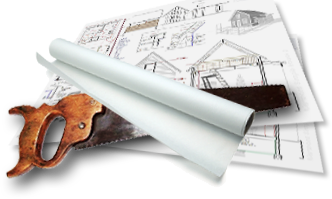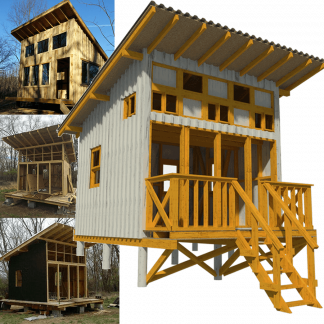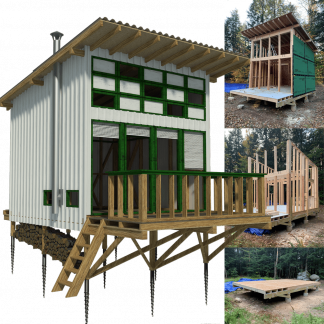Summers are getting hotter, and air conditioners are working overtime. But have you thought about how your old AC unit might be affecting the environment? Old air conditioners can be real energy hogs and may use harmful chemicals that damage our planet.
This article will explore why upgrading your AC isn’t just about staying cool – it’s about being kind to the environment, too.

The Hidden Costs of Old Air Conditioners
Many people don’t realize that keeping an old air conditioner running can have significant drawbacks. Let’s explore some of the hidden costs associated with outdated AC units.
Energy Inefficiency
Old air conditioners use a lot more power than newer models. They have to work harder to cool your space, which means higher electricity bills for you and more strain on power plants. This extra energy use leads to more greenhouse gases being released into the atmosphere. Newer AC units installed by your trusted AC experts are designed to cool more efficiently, using less energy to do the same job.
Outdated Refrigerants
Many old air conditioners use refrigerants that are bad for the ozone layer. These chemicals, like R-22 (also called Freon), were common in ACs made before 2010. When they leak, they rise into the atmosphere and damage the ozone layer, which protects us from harmful UV rays. Newer ACs use more environmentally friendly refrigerants that don’t harm the ozone layer.
Frequent Repairs and Waste
As air conditioners age, they break down more often. This means more repair visits, which use fuel for technician travel and often require replacement parts. When an old AC finally gives up, it becomes electronic waste. If not disposed of properly, the materials and chemicals in old units can pollute landfills and groundwater.

Why Upgrading Matters
Switching to a newer air conditioning system offers numerous benefits, both for your home and the environment. They include:
Better Energy Efficiency
New air conditioners are much more energy-efficient. They use advanced technology to cool your space while using less power. This means lower electricity bills and a smaller carbon footprint. Some new models even have smart features that learn your habits and adjust cooling automatically, saving even more energy.
Eco-Friendly Refrigerants
Modern ACs use refrigerants that are much safer for the environment. These new chemicals don’t damage the ozone layer and have a lower global warming potential. This means they contribute less to climate change if they leak out of the system.
Longer Lifespan and Less Waste
Newer air conditioners are built to last longer with proper maintenance. This means fewer breakdowns, less need for repairs, and less electronic waste in the long run. When they do reach the end of their life, many of the materials in new ACs can be recycled more easily.
Advanced Features for Better Control
Many new AC units come with programmable thermostats or can be controlled via smartphone apps. This allows for more precise temperature control and scheduling, which can lead to significant energy savings. You can cool your home only when you need it, without wasting energy when you’re away or asleep.
The Bigger Picture: Global Impact of Air Conditioning
Air conditioning doesn’t just affect individual homes and energy bills – it has far-reaching consequences on a global scale. Understanding these broader impacts helps put our cooling choices into perspective.
Growing Demand Worldwide
As global temperatures rise, more people around the world are buying air conditioners. This is especially true in developing countries with hot climates. While this improves quality of life, it also means a huge increase in energy demand and potential environmental impact.
Strain on Power Grids
On hot days, air conditioners can put a major strain on electricity grids. This can lead to blackouts and the need for more power plants, which often burn fossil fuels. Upgrading to more efficient ACs can help reduce this strain and the need for new power plants.
Steps for a Greener Cooling Future
Now that you understand the environmental impact of old air conditioners and the benefits of upgrading, let’s look at practical steps you can take towards more sustainable cooling. These actions can help reduce energy consumption and minimize your environmental footprint.
Assess Your Current System
Before rushing to buy a new AC, check how old your current system is and how well it’s performing. If it’s more than ten years old or frequently needs repairs, it might be time for an upgrade.
Look for Energy Star Ratings
When shopping for a new air conditioner, look for air conditioning units with high Energy Star ratings. These models meet strict energy efficiency guidelines set by the U.S. Environmental Protection Agency and the Department of Energy.
Consider Alternative Cooling Methods
While upgrading to a more efficient AC is great, also think about other ways to keep cool. Improving your home’s insulation, using ceiling fans, and planting shade trees can all help reduce your reliance on air conditioning.
Proper Maintenance Matters
Even with a new, efficient AC, regular maintenance is key. Clean or replace filters monthly, keep the outdoor unit clear of debris and have a professional check-up annually. This keeps your AC running efficiently and extends its lifespan.
Conclusion
Upgrading an old air conditioner isn’t just about personal comfort – it’s a choice that affects the environment on a global scale. By switching to newer, more efficient models, we can reduce energy consumption, cut down on harmful emissions, and play a part in fighting global climate change. While the upfront cost of a new AC might seem high, the long-term benefits for both your wallet and the planet make it a smart investment. As we face hotter summers and growing environmental challenges, making the switch to greener cooling options is more important than ever.








